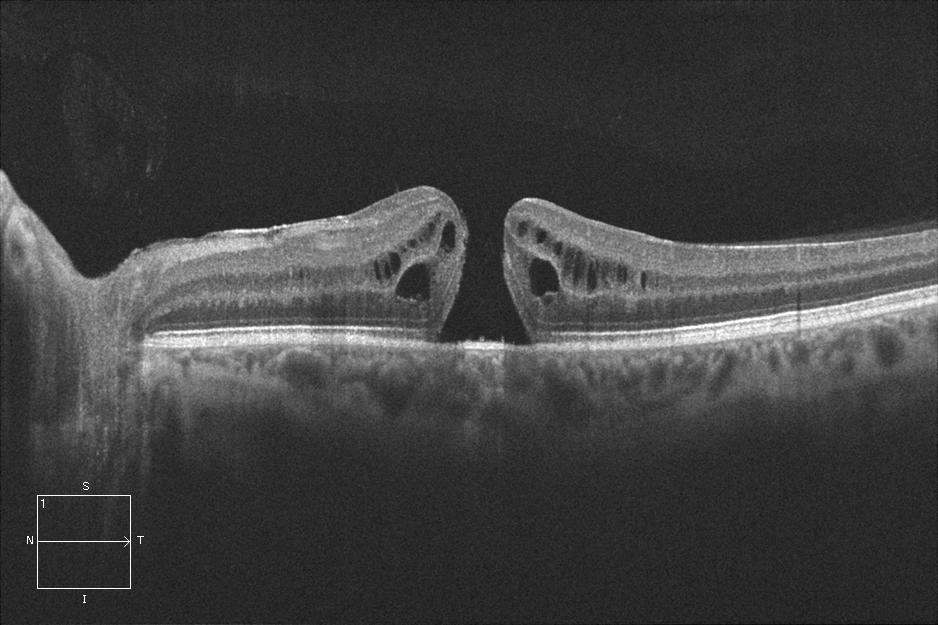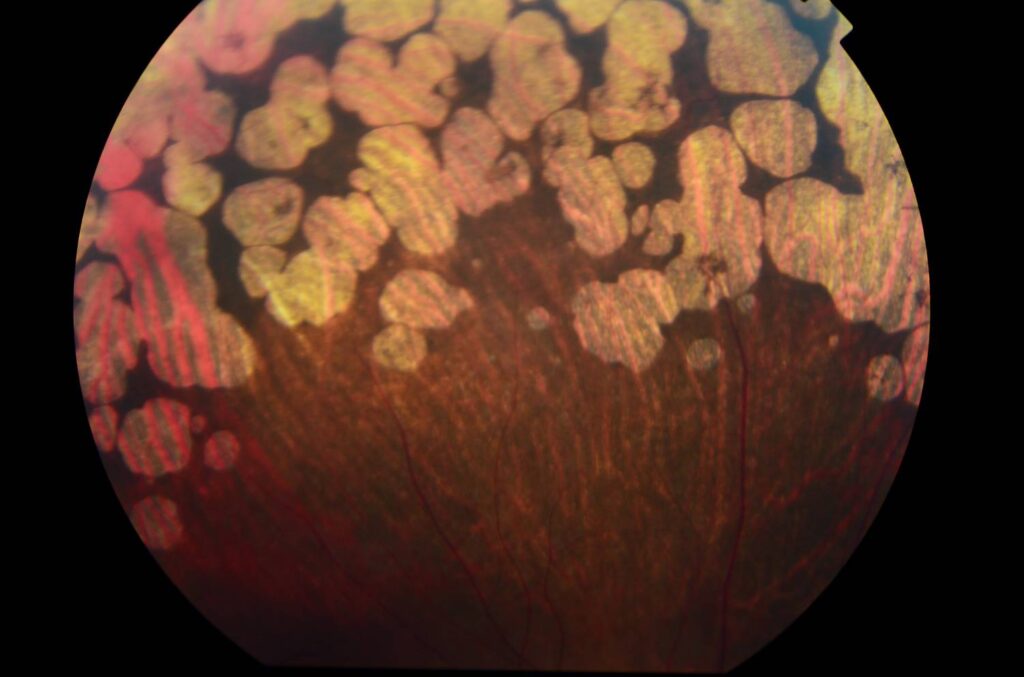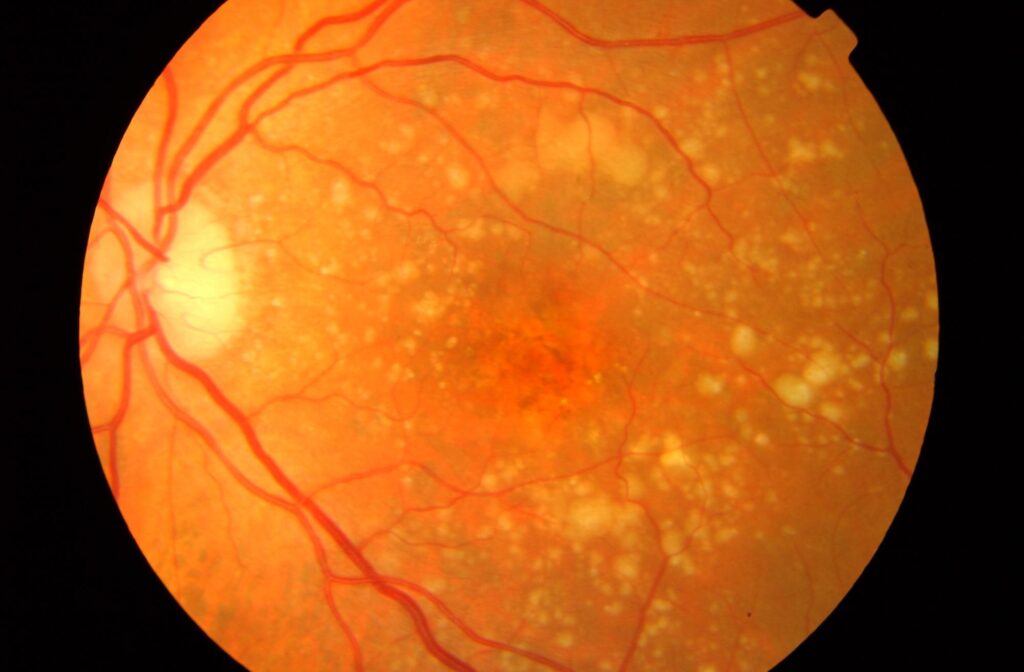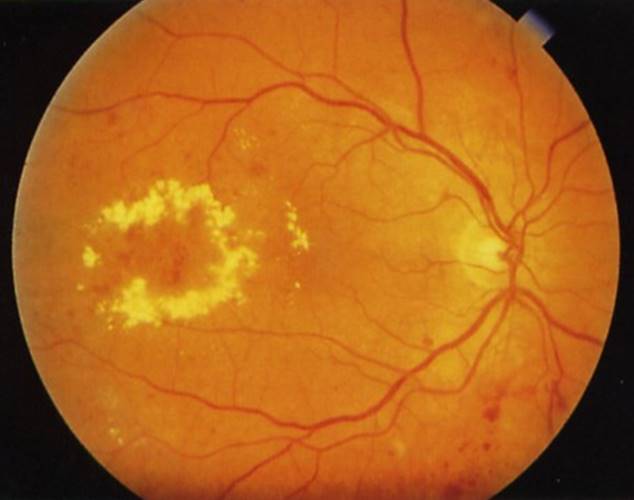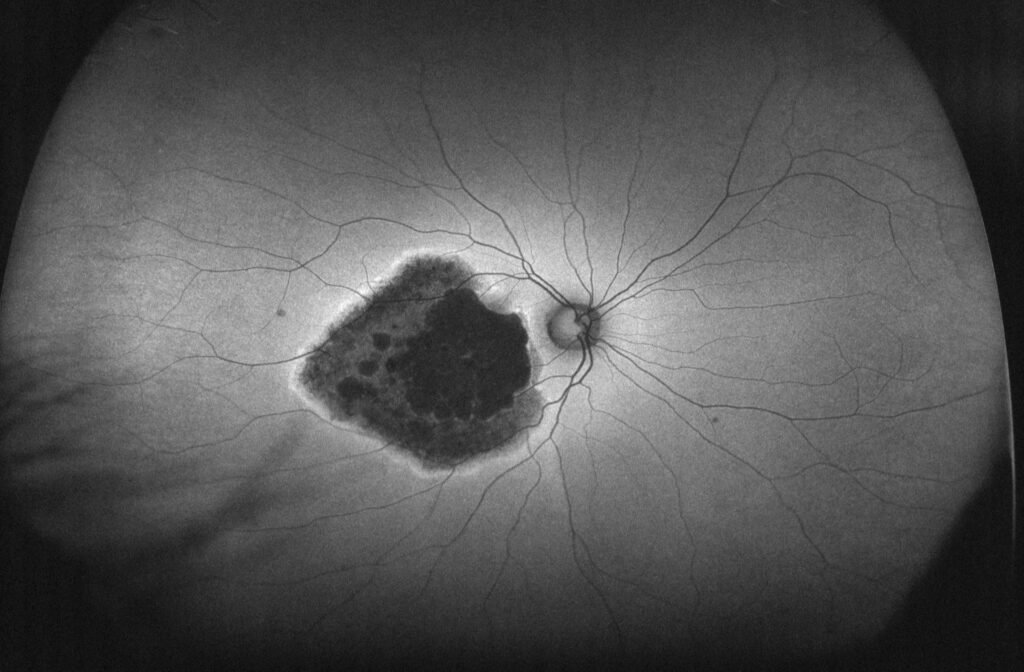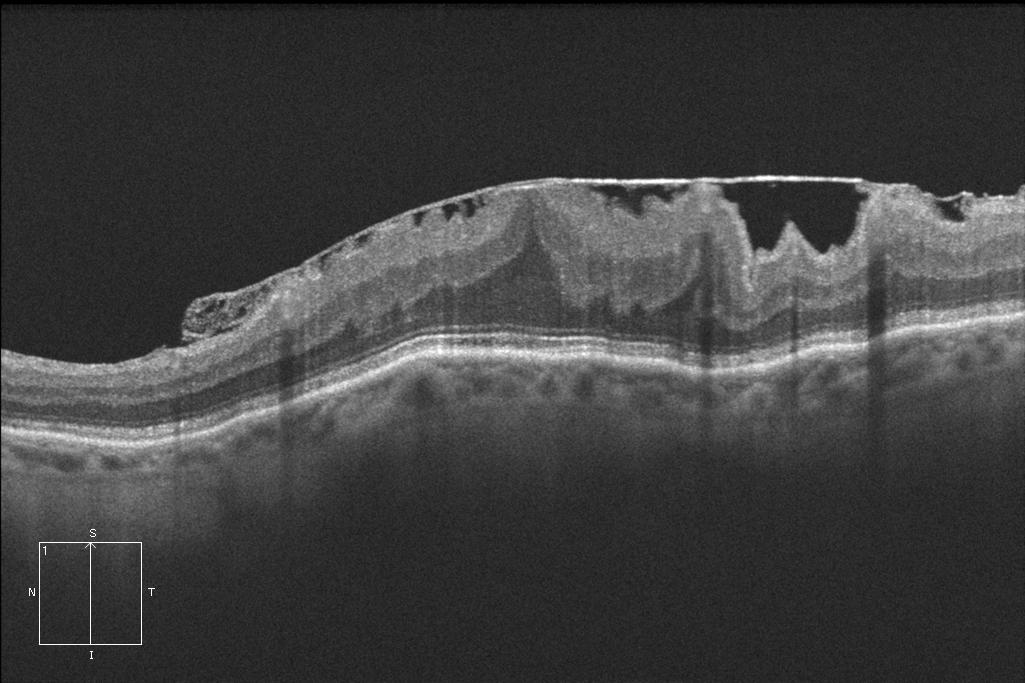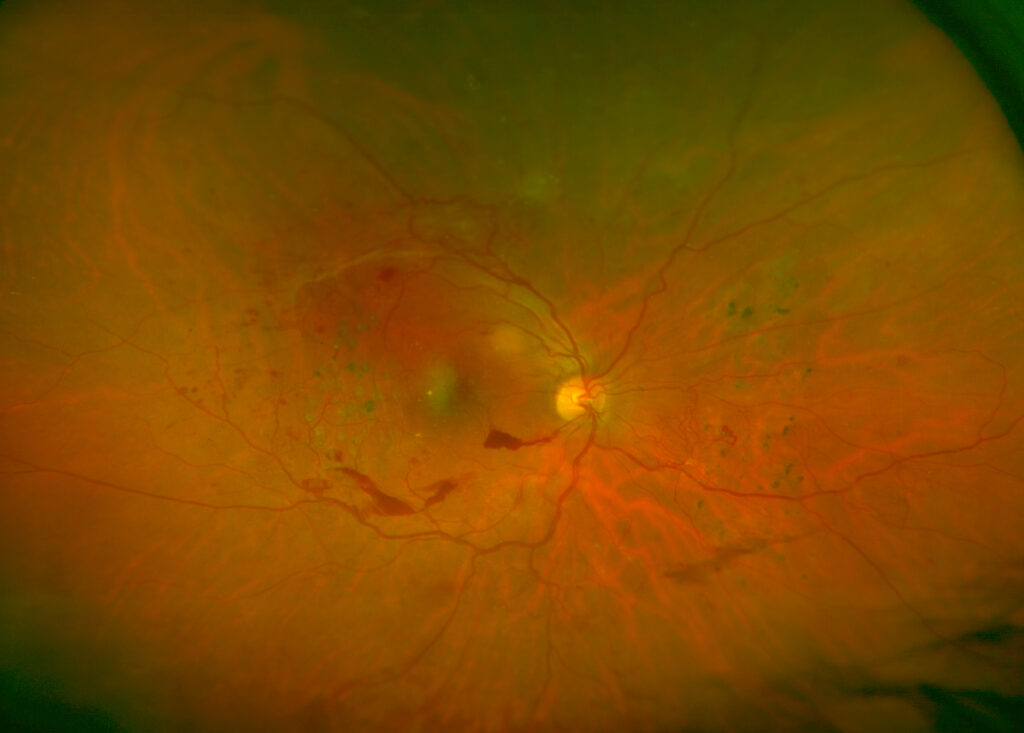Symptoms
Loss of central vision


What is the loss of central vision?
Central vision depends on the macula, a very small area located in the centre of the retina (the innermost layer of the eye), which is directly linked to visual acuity. It is in this area where a greater number of photoreceptor cells are concentrated, which allow us to see clearly and capture the colours and intensity of light: these are the cones, and we have a total of 6 to 7 million.
How does central vision loss affect you?
Thanks to central vision and the work of the macula, we can distinguish small details or movement, as well as recognise people’s faces and carry out actions that require precise use of our eyesight, such as sewing, checking the time or reading.
Central vision loss can appear gradually or suddenly and usually appears as a dark spot, blurred area or distorted area in the centre of the visual field, which makes it difficult to see objects in detail. It usually does not cause any pain or discomfort, except for the visual limitation it involves, with different degrees of severity, according to its cause and evolution.
Unlike the loss of peripheral vision, which may initially go unnoticed, central involvement is usually more evident from the initial stages, which should enable early diagnosis and treatment.
What to do if you experience central vision loss?
Central vision loss is considered an ophthalmological emergency, so if you notice any alteration, you should not delay your visit to the ophthalmologist. Moreover, it is advisable for you to have a check-up, as indicated by your specialist, to be able to carry out a study of the fundus to determine the condition of your retina. These check-ups are especially important from the age of 40 and even earlier, if you have risk factors, such as high myopia, diabetes, high blood pressure or smoking, among others.
Through appropriate diagnostic tests, we can detect certain lesions or abnormalities in the retina before they even become visually apparent. In cases where the loss of central vision is already noticeable and does not improve with treatment, a service we also offer at the Miranza centres is accompanying you through Low Vision Department, where we have different types of aids (optical, new technologies …) for your visual rehabilitation and improved performance in your daily activities.
